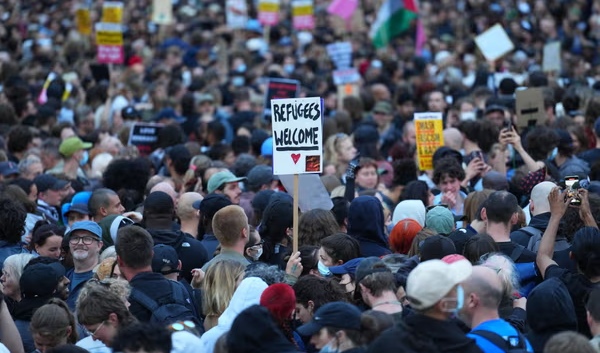Britons see migration as the most important issue, for the first time since 2016 – when Britain voted to leave the European Union – following riots this month targeting Muslims and migrants, pollster Ipsos said on Friday.
Just over a third of Britons (34%) named immigration as the most important issue, ahead of health (30%), the economy (29%), crime (25%) and inflation (20%), the August edition of the monthly Ipsos Issues Index showed. Race relations was the top issue for 11 per cent of respondents.
Net migration to the UK – the difference between people moving into the country and those leaving – hit a record high in 2022 at 764,000. The following year it fell slightly to 685,000 people.
The public’s fears about immigration have intensified after riots this month in many cities in which anti-immigration demonstrators attacked hotels housing asylum seekers and mosques, the survey said. Ipsos researcher Mike Clemence said:
“The impact of the recent riots across the UK is clear in this month’s data…the level of concern about crime and race relations has also surged to recent highs.”
The riots subsided after several participants were arrested and offenders quickly received prison sentences. Many people also took part in rallies against racism.
Other polls confirm Britons’ reasons for concern
The Ipsos poll echoes another released by YouGov last week, which also showed that immigration topped the list of the most important national issues for the first time since 2016, when concerns about immigration was one of the main reasons for Britain’s vote to leave the European Union that year. Ipsos polled 1,010 adults between 7 and 13 August, while YouGov polled 2,163 adults between 5 and 6 August.
Ipsos’ Issues Index is conducted monthly and provides an overview of the key issues concerning the country. It interviewed a representative sample of c.1,000 adults aged 18+ across Great Britain. The answers are spontaneous responses, and participants are not prompted with any answers.
